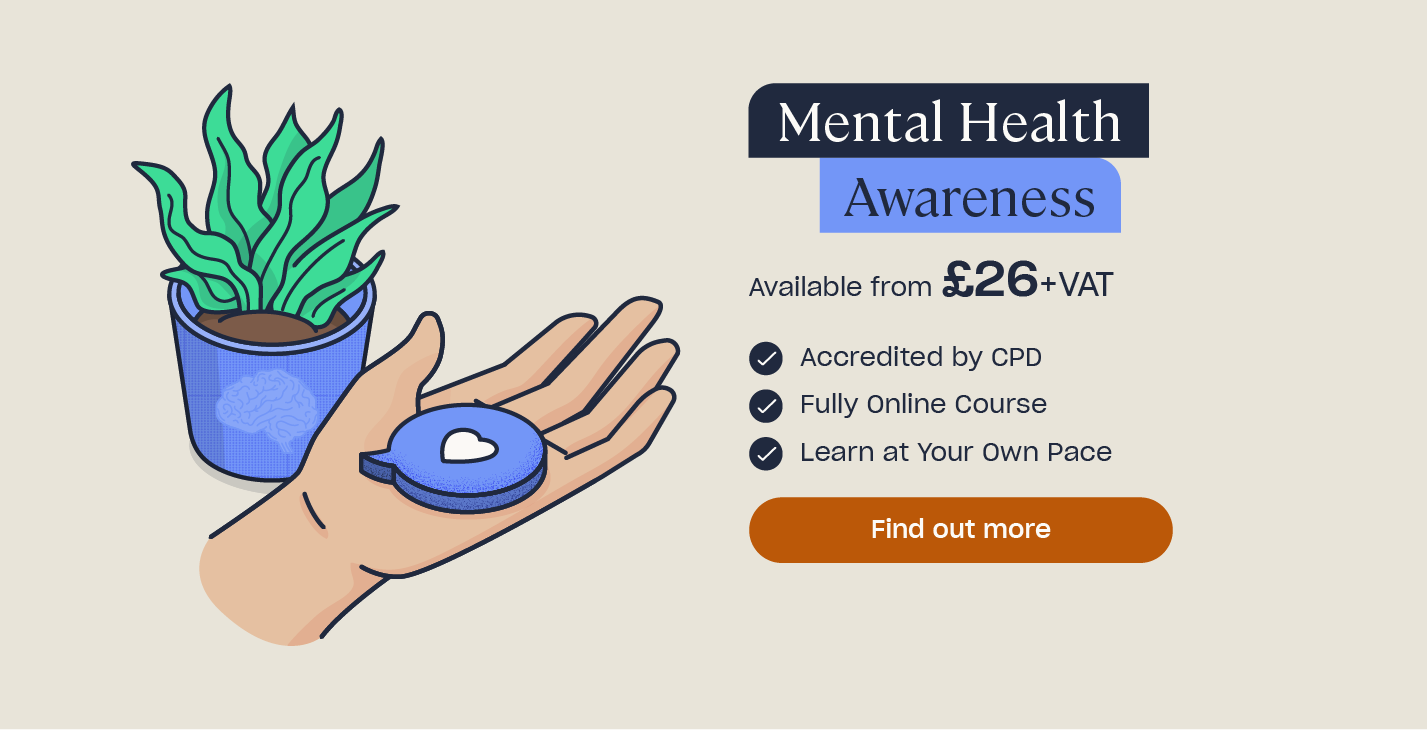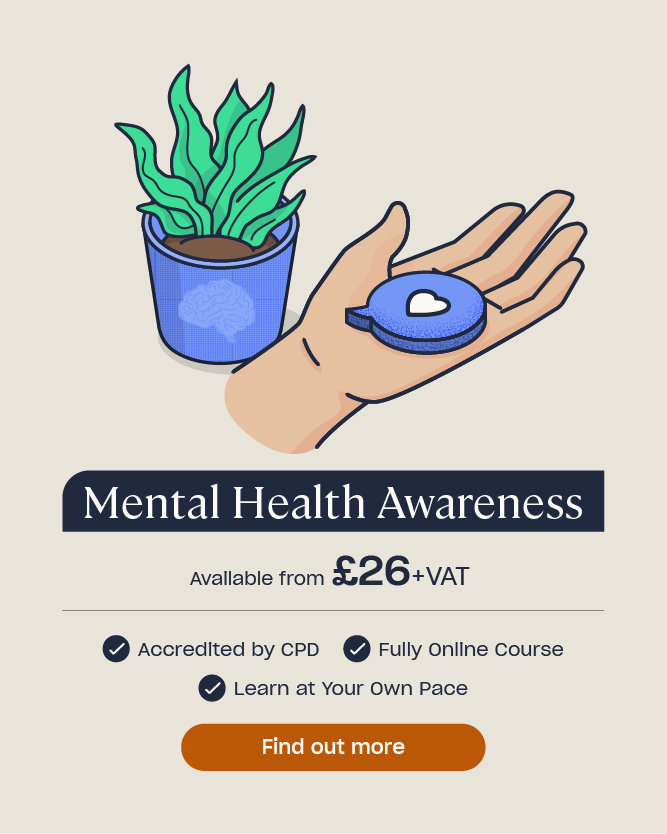How to Help Someone With Loneliness
Loneliness refers to the state of being alone or the perception of being alone and isolated. Loneliness can have a significant impact on people of all ages, including their mental health. This year, the theme for Mental Health Awareness Week is loneliness. The week will explore the experience of loneliness, its effect on mental health and how we can play a part in reducing it.
This article outlines potential causes of loneliness as well as some common symptoms. We will also discuss how this can have an impact on your mental health, alongside tips for coping with it.
What Causes Loneliness?
Loneliness has many different causes that vary from person to person. For some people it may be a life event that has made them feel lonely, whilst others may feel lonely at certain times of the year. It is important to note that feelings of loneliness can change over time and depending on the circumstances.
Some common causes of loneliness include:
- Moving to a new area.
- Experiencing an illness.
- Changing job or school.
- Working from home.
- Living alone.
- A break up.
- Issues around self-esteem.
- Mental health issues.
- Age, specifically in the elderly population.
- Experiencing a bereavement.
- Starting university.
- A fall out with loved ones.
- Discrimination.
- Social isolation.
It is important to note that, although related, loneliness and isolation are two different things. Loneliness refers to the feeling of being alone, regardless of the amount of social contact; whereas social isolation refers to a lack of social connections. Some people feel lonely without being isolated, in others, isolation can lead to loneliness.
Loneliness in the Elderly
Older people are especially vulnerable to loneliness and it can have a serious effect on their health. There are many explanations for this, however the most common one is that getting older and weaker means they are less able to go out and take part in the social activities that they used to. Other causes include retiring or leaving the workplace, the death of a spouse, disability or illness.

As mentioned, loneliness can lead to a myriad of health problems, especially if it is undetected. Problems include depression, a loss of appetite, insomnia or the development of unhealthy habits. Therefore, it is important to be there for the elderly to help combat their feelings of loneliness. You can do this by following the Ten Practical Tips for Being a Friend to Older People in Your Community.
What are the Symptoms of Loneliness?
Some feelings you might have when lonely include feeling like nobody needs or wants you and feeling like you don’t have any meaningful relationships. Other symptoms of loneliness include:
- Feeling tired or lacking energy.
- Caring about material possessions or frequently shopping.
- Cravings for physical warmth such as taking long, hot showers, hot drinks and cosy blankets.
- Binge-watching TV.
- Increased stress levels.
- Spending a lot of time on social media.
- Gaining weight or a decrease in appetite.
- Feeling run down or frequently getting sick.
- An inability to focus.
- Insomnia or interrupted sleep.
- Feelings of self-doubt, hopelessness or worthlessness.
- Feeling anxious or restless.

You may notice the signs and symptoms mentioned above in yourself or in others. Other indicators that yourself or someone close to you is lonely include avoiding social events and a strong desire to miss out on meeting up. It is important that you know how to respond if you notice yourself, or someone else, is feeling lonely as loneliness can have a significant impact on mental health.
How Can Loneliness Impact Mental Health?
Loneliness can have a huge impact on mental health and has associations with depression and anxiety. Loneliness isn’t in itself a mental health problem, but the two are linked and often present themselves at the same time. For example, having a mental health problem can increase the chances of feeling lonely. Similarly, feeling lonely can negatively impact on your mental health, especially if the feelings of loneliness last a long time.
Certain mental health issues can lead to loneliness, for example social anxiety (also known as social phobia). People with social anxiety can find it difficult to engage in everyday activities involving other people, which can lead to a lack of meaningful social contact and consequently, feelings of loneliness.
If you recognise in yourself an inability to connect with others, it can fuel negative thoughts and feelings around self-doubt and self-worth. Equally, feeling socially cut off or isolated can impact your views of yourself and, in turn, your mental health. It is also important to note that feelings of loneliness are subjective and differ between people. For example, some people can be alone and not feel lonely, while others can be surrounded by people and feel lonely.
Looking to Learn More?
Not everyone understands how mental health issues can affect others or even themselves. Our Mental Health Awareness Training Course will provide you with a deeper understanding of common mental health issues, your own mental health and what you can do about it. You can also learn more in our Mental Health Myths vs Facts article.
Tips for Coping with Loneliness
Everyone feels lonely at some point in their life. While this doesn’t make the feelings any better, it is reassuring to know that others feel the same as you and there are things you can do about it.
Some tips for coping with loneliness include:
- Joining a class or club: there are many clubs and classes available to join or take part in, such as book clubs, exercise classes, and art classes. Visit your local library or check your community services to find out what is available near you.
- Volunteering: volunteering is a great way to meet new people while helping a cause you believe in. Often charities and local organisations are in need of more volunteers and it can lead to feelings of gratitude and give you a sense of real purpose knowing you’re helping others.
- Strengthening existing relationships: if you already have people in your life such as old friends or family members, it could be helpful to reach out to them and deepen your connections. Organising to see them or spending time talking with them and getting to know them more can help with feelings of loneliness and lead to more interactions in the future.
- Adopting or getting a pet: adopting or getting a pet can have many benefits and can bring lots of opportunities for coping with loneliness. Not only does the animal themselves offer companionship, but the possibility of getting involved in local groups, meeting people when taking them out or attending training classes can also help.
- Practicing self-care: this encompasses a multitude of things including getting enough sleep, healthy eating, physical activity and exercise. Looking after your physical wellbeing simultaneously helps with your emotional wellbeing. When you feel better about yourself, it builds your confidence and can help you combat loneliness as often your feelings about yourself can hinder you from reaching out to people or engaging socially.
- Joining an online community: there are many online communities available for you to connect with others who are experiencing similar feelings or have similar interests to yourself. You can access them via social media, discussion boards and local community groups.
- Talking to others: you shouldn’t underestimate the impact of talking to others about your feelings or any problems you’re experiencing. Often, you may find that someone else is going through something similar to you.

Some ways you can help others to cope with loneliness include:
- Reaching out: simply being there for them and letting them know you are there and that you care can be very helpful. Don’t be afraid to ask them how they’re feeling, having someone to listen can be a great comfort.
- Encouraging them to try new things: encouraging and reassuring them that trying new things is a good thing can really help someone who is lonely. They may need further support in accessing the information, for example a timetable of local events, but even a phone call to check how it went can help.
- Being patient: when someone is lonely, particularly if their loneliness is associated with poor mental or physical health, they may be irritable or feel misunderstood. Patience and gentle reassurance can go a long way in helping them and showing you care.
- Helping the elderly: there is specific guidance for helping the elderly with loneliness, which includes ten practical tips for being a friend to older people in your community.
Loneliness is the perception or state of being alone and can happen to anyone. There are many different causes of loneliness including bereavement or relocating and symptoms can vary from person to person. It is important to support those who are feeling lonely as it can negatively impact their mental health.
Further Resources:
- Mental Health Awareness Training Course
- Mental Health Myths vs Facts: What are the Realities?
- Activities for Care Homes: Free Planner and Ideas
- How to Talk About Mental Health











